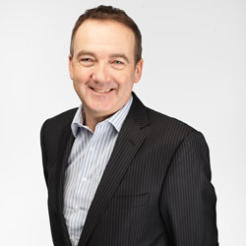The Health Lottery is blurring the distinction between lotteries and mainstream gambling, the managing director of National Lottery operator Camelot UK has argued at the Lotteries Council AGM today.
Andy Duncan said Camelot is facing several threats that also impacted the “lottery ecosystem as whole”, including competition from the Health Lottery, which was launched by Express newspapers and Channel 5 owner Richard Desmond in 2011 and operates as 51 society lotteries.
In a wide-ranging speech, he criticised the Health Lottery for not being open about how it spends players’ money and spending 50p in every pound on expenses, compared to the National Lottery’s 5p.
Camelot supports relaxation of 80:20 rule
Duncan also said Camelot supported deregulation of society lotteries, including a relaxation of the rule stipulating that 20 per cent of proceeds must be returned to good causes. He said for small, start-up society lotteries the 80:20 ratio could be averaged over three years.
This is something the society lotteries sector, including the Lotteries Council and the Institute of Fundraising, have been calling for. However, he said Camelot was against any abolition of turnover limits and prize caps, which many in the society lottery sector say would help increase the money they return to good causes.
“We’ve got to ask ourselves what we would prefer,” he said. “One national lottery closely scrutinised and monitored, which remains the globally-proven model to maximise returns to society. Or do we want several big beasts, far less regulated, pushing the boundaries of legislation and regulation, and crowding out the finely balanced co-existence that we believe Parliament clearly intended.”
Duncan: Health Lottery bears no relation to society lotteries
On the Health Lottery, Duncan said Desmond’s venture was exacerbating the blurred distinction between lotteries and mainstream gambling with its product range including casino and bingo games and the partnership with the betting chain Coral.
“Make no mistake, the Health Lottery and its increasing range of gambling derivatives bear no relation to society lotteries as we have always understood them,” he said.
“The approach and structure of the Health Lottery seem to us to have helped turn on its head the conventional wisdom that lotteries exist primarily to make returns to society and not to the people running them.”
In 2012, the High Court rejected Camelot’s application for a judicial review of the Gambling Commission’s regulation of the Health Lottery because it believed the lottery was attempting to commercialise society lotteries.
The judges said it was a matter for Parliament, which Duncan said was “more reason” for a consultation on society lotteries go ahead. The Department for Culture Media and Sport announced a consultation on society lotteries would take place in December 2012, but it is currently on hold.
Duncan said Camelot saw the Health Lottery as a national competitor and said its greatest concern was the precedent it set.
He said Camelot did not want tighter regulation of all society lotteries and its proposals were aimed at addressing the threat of a national competitor to the National Lottery.
These include a reintroducing a 15 per cent cap on expenses, which existed prior to the Gambling Act 2005 and to increase the minimum 20 per cent contribution to align more closely with the amount the National Lottery contributes, which is 28p in a £1, he said.
He told delegates: “These proposals would not have a negative effect on the vast majority of you simply because they would not apply.”
A recent study by the Centre for Economics and Business Research, commissioned by the Lotteries Council and the Institute, found donations to good causes worth almost £90m a year could be lost if a 15 per cent cap on the costs of society lotteries was introduced.
Health Lottery: Amazed Camelot spends so much time worrying about us
Mimi Turner, director of marketing at the Health Lottery, said: “Camelot is a very large, very profitable and very successful monopoly business whose executives earn millions and millions of pounds. It is simply huge compared to the Health Lottery.
“They sell more tickets in a week than we sell in a whole year. I'm amazed they spend so much time worrying about us. The Health Lottery was set up by community companies to help raise money for local health charities – and all our business focus is on that aim. We offer players value for money and more chances to win, and that gives the 51 community companies which raise money through the Health Lottery the ability to support thousands of small deserving health projects that are in desperate need of funding.”
The Health Lottery will have returned £50m to good causes by June, she said.









